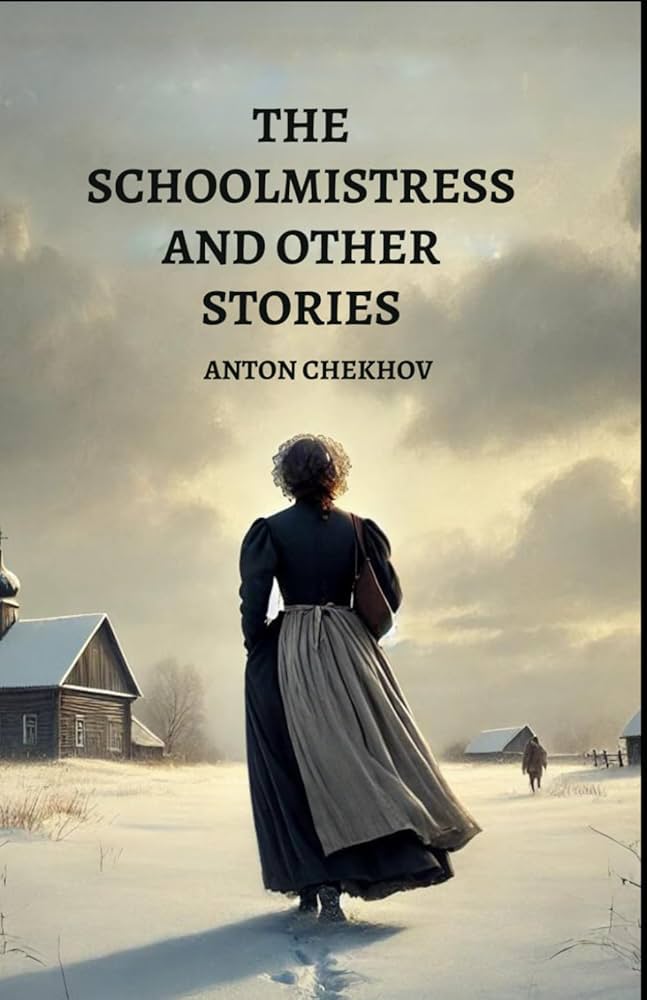CHAMPAGNE
byChampagne begins in a place where time seems to crawl—on the edge of the Russian steppe, inside a lonely station where the narrator works. In this outpost far from towns or celebrations, daily life unfolds in predictable, colorless repetition. Trains pass quickly, faces flash by, but nothing ever truly arrives to change things. The station is both literal and metaphorical, representing a pause in life that stretches too long. The narrator lives with his wife, a woman who once stirred his hope but now shares his weariness. They are surrounded by dust, snow, and silence. Only the occasional bottle of vodka offers an escape, though even this is tainted with guilt. This backdrop frames the New Year, a moment when most look forward with joy, but which only emphasizes the couple’s despair.
Their celebration is modest—two people at a rough table with a rare bottle of champagne. This bottle is meant to mark something special, though there is little to celebrate. The narrator fumbles while trying to open it, and the bottle falls, spilling its contents. His wife gasps, declaring it a bad omen. He laughs, dismissing her fear, but her reaction reveals how brittle hope has become. Superstition becomes a shield, a way to make sense of a life that feels out of her control. She is not simply reacting to spilled wine; she’s mourning the absence of change. In this moment, her sadness is both ridiculous and deeply human. She sees in the broken bottle a reflection of their shared life—something once sparkling, now lost.
What follows is not just introspection but unraveling. The narrator admits how little he has made of his life. His job means nothing to him. His marriage feels like a mistake—one he didn’t even fully choose. He once imagined love would bring purpose, but it brought only routine. There are no children, no friends, just passing trains and the same few faces. He envies people in the cities, people with destinations. Out here, he is stuck in a place the world has forgotten. That forgottenness has seeped into his bones. And though he tries to appear indifferent, he is painfully aware that the best parts of his life might have already slipped by.
When a guest arrives, it is as if a door opens to another world. Natalya Petrovna, elegant and bold, enters their small station like a figure from a different story. She is fleeing her own troubles, but to the narrator, she feels like hope made visible. Her presence reminds him of life’s richness—its passion, danger, and choices. She is not a better life, but a contrast to his own—a woman who dared to escape, even if only temporarily. Her laughter cuts through the gloom. Even his wife notices the change, though she says little. The moment is brief, but it lingers, like perfume in a cold room.
That night, everything feels different—not better, just stirred. The narrator does not find redemption or resolution. He is still trapped, but now more aware of what he has lost. The station remains the same, the trains will continue to pass, and winter will drag on. But the story he tells is a memory, and in that memory, something flickered. Champagne spilled on the floor, a woman arrived, and for one night, life reminded him of its sting and sparkle. For the reader, this serves as a quiet meditation on the emptiness we try to fill, the signs we invent, and the moments we never fully understand until much later.
Through minimal action and quiet reflection, Chekhov captures the ache of ordinary lives. He does not offer solutions or villains—only glimpses of the internal battles we all fight. This is why stories like Champagne endure. They ask not what can change, but whether awareness itself is a kind of change. Perhaps that is all we are given—these small awakenings in the middle of the snow.

